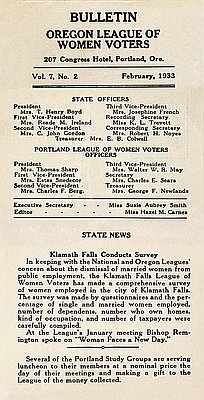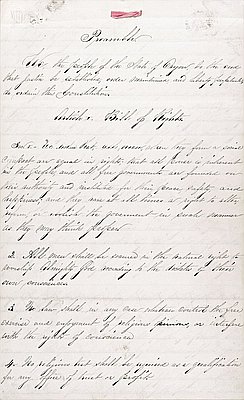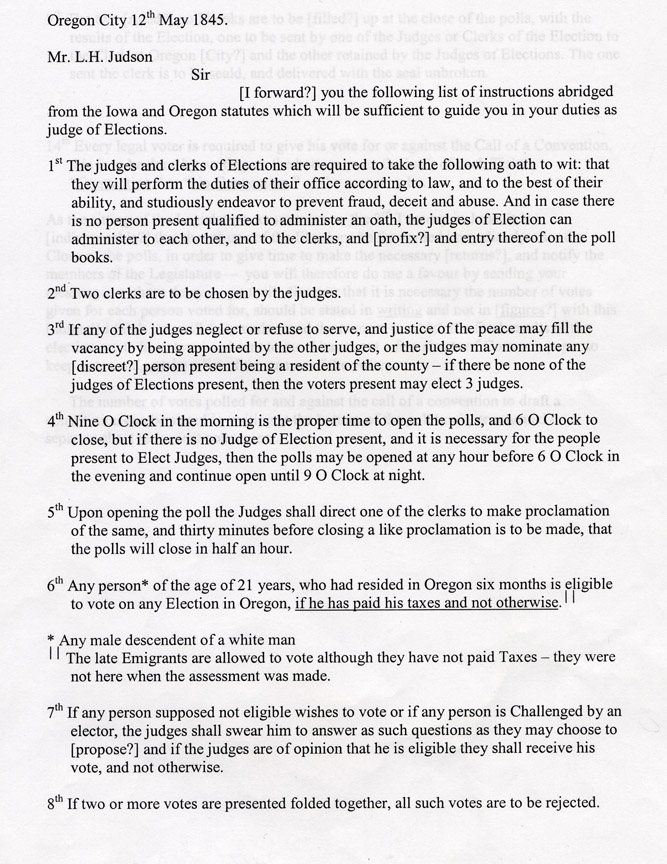- Catalog No. —
- bc006595
- Date —
- May 12, 1845
- Era —
- 1792-1845 (Early Exploration, Fur Trade, Missionaries, and Settlement), 1846-1880 (Treaties, Civil War, and Immigration)
- Themes —
- Black History, Government, Law, and Politics, Oregon Trail and Resettlement
- Credits —
- Lewis Hubbell Judson letters, Mss 976, Oregon Historical Society Research Library
- Regions —
- Oregon Country
- Author —
- J.G. Long
Voting Rules, 1845 Letter to L.H. Judson
This document is a transcription of a May 12, 1845, letter sent to Lewis Hubble Judson, who was serving as a judge of elections that spring. Judson was a member of Oregon's provisional government, which was formed on May 2, 1843. Euro-American settlers in the Willamette Valley had sent a petition to the U.S. government in 1838 and 1840, requesting that Oregon be designated a U.S. territory, but Congress did not approve a territorial government until 1848.
During the summer of 1843, the settlers organized their provisional government, using the one law book they had on hand - Organic Laws of the State of Iowa. At that time, taxation was voluntary, and the executive branch of the government was comprised of a committee. By summer 1844, many newcomers had arrived, and the settlers made alterations to their government. They reduced the executive branch to one person, made taxation compulsory, and outlawed both alcohol and African American residents.
This letter indicates that, in May 1845, the provisional government was still referring to the Iowa law book, but that it had also created Oregon statutes. The offices being filled by this election are not indicated, but there is reference to a vote being taken on whether citizens wished to convene a constitutional convention, thereby beginning the process of petitioning for statehood. Citizens had voted against convening a convention in 1854, and they did so again in 1855 and 1856, fearing higher taxes.
This letter illustrates the seriousness with which settlers undertook elections. Detailed instructions are spelled out for voting, including how to choose officials, when to open and close polls, and who is allowed to cast a ballot. In a footnote, Long notes that eligible voters are "any male descendent of a white man." That provision gave the vote to children who had Euro-American fathers and non-white, usually Native, mothers. Women did not gain the right to vote in Oregon state elections until 1912 and in federal elections until the nineteenth amendment to the U.S. Constitution was made law on August 26, 1920.
Further reading:
Carey, Charles H. General History of Oregon Through Early Statehood. Portland: Binfords & Mort, 1971.
Written by Eliza Canty-Jones, © Oregon Historical Society, 2007.
Related Historical Records
-
Oregon League of Women Voters Bulletin
This 1933 article in the Oregon League of Women Voters Bulletin refers to a survey of working women conducted by the League’s Klamath Falls branch. The article does …

-
Draft of Oregon State Constitution
This document is a draft version of the Oregon State Constitution’s preamble and bill of rights. It was written in 1857. After defeating motions to organize a state constitutional convention …

